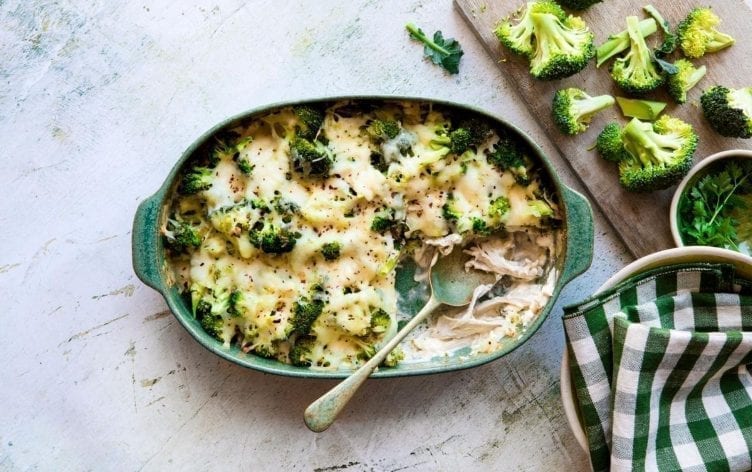How Many Carbs On Low Carb High Fat Diet
10 Things to Know Before Trying the Low-Carb, High-Fat Diet

September 3, 2020

"Cut the carbs, bring on the fat." That's been the diet battle cry of late with the rise in popularity of the ketogenic diet. But you don't have to go zero to keto — the low-carb, high-fat (LCHF) diet can yield similar benefits and is a less restrictive eating plan.
The LCHF diet "moves away from fast-burning carbohydrates and high-glycemic foods, which is smart for most people," says Robin Foroutan, RDN, spokesperson for the Academy of Nutrition and Dietetics. "Ideally, we want our bodies to be metabolically flexible." This means if carbs and glycogen are available, our bodies use those for fuel first. If they're depleted, our bodies switch to burning fat for energy.
"Sometimes, our bodies get 'stuck' and have a very difficult time switching to burning fat. That is when you may find an underlying metabolic issue like insulin resistance or insufficient amounts of certain nutrients," Foroutan explains. "When this happens, a LCHF diet can be helpful."
Before you try it, here's what you need to know about the LCHF diet.
The ketogenic diet focuses on a macro breakdown of 75% fat, 20% protein and 5% carbs, and most people aim to consume around 20–50 grams of carbs per day (for context, a medium potato has 37 grams of carbs). With LCHF, there isn't a specific macro target, which allows more flexibility, says Jen Bruning, RDN, spokesperson for the Academy of Nutrition and Dietetics. The goal is to cut back on carbs overall as part of a lifestyle change. For example, it could be 45% of calories from carbs, which isn't nearly as drastic as keto.
"On an LCHF some people have success limiting carbs to 100 grams per day, but some people choose to go as low as 20 grams per day," says Bruning. When you limit carbohydrates to that lower end, "you'll probably need to cut out most fruits, many vegetables, all grains and some nuts," adds Julie Miller Jones, PhD, emeritus professor of nutrition at St. Catherine University.
Belly fat, aka visceral fat, is often referred to as the most dangerous fat since it sits near the organs and is linked to an increased risk for heart disease and Type 2 diabetes. Research shows obese adults who consumed a lower-carb, higher-fat diet lost more body fat, especially in the belly area, compared to those following a low-fat diet.
"We tend to eat with our eyes, and many people appreciate the appearance of a full plate of food," says Bruning. However, "Since fats are satiating, it may not take as much food as you think to get your days' allotment of calories when many of your food choices are high fat." This is important to keep in mind so you don't overeat because you thought your plate looked on the skimpier side. Not to mention that a gram of fat has 9 calories, whereas protein and carbohydrates each have 4 calories.
Eating fewer carbs can mean less fiber, an essential nutrient many Americans do not consume enough of. "Studies show fiber plays a role in maintaining blood cholesterol and glucose levels; it supports a healthy microbiome and can also aid weight loss," says Miller Jones. You might also feel hungry all the time if you're not consuming enough fiber since it is key in slowing digestion and helping you feel full.
Some research suggests LCHF diets may be superior to low-fat diets if your goal is weight loss. However, other studies find no difference between the two, plus some struggle to stick to this eating pattern. "If it's not a sustainable way of eating, it can lead to yo-yo dieting and weight regain," says Miller Jones.
"Some people naturally gravitate toward a primarily meat and vegetable plate balance. Those individuals might already follow a LCHF without even thinking about it," says Bruning. But if you love pasta, bread and sweets, you could battle hunger and cravings, especially if you cut your carb intake too drastically, she adds.
"If you are pregnant or immunocompromised, have diabetes or are on certain medications, you should work with your doctor and a registered dietitian-nutritionist (RD or RDN) to determine if this diet pattern is safe for you," Bruning says. And as with most diets, anyone with a history of disordered eating should also proceed with caution.
"Spirits like vodka and tequila are OK as part of the LCHF diet, and they can also be mixed with soda water," says Bruning. It's also possible to dine out on the LCHF diet, just be ready to request changes like replacing grains with more veggies or putting dressings and sauces on the side.
There's no need to cut out all carbs on day 1. "Start with backing off of processed carbohydrates and added sugars, then see how you feel," Foroutan recommends. "Focus more on blood sugar balance, meaning emphasize vegetables, high-quality protein, healthy fats and carbs from slow-burning, highly nutritious sources like fruit, whole grains, legumes, pulses and root vegetables. This is usually enough of a change for most people to see a positive shift."
Unlike keto, LCHF allows for a little more flexibility in choosing a carbohydrate goal that meets your needs. It's important to prioritize complex carbs, healthy fats, lean proteins and veggies while easing in slowly to prevent cravings. If you decide to try it, Bruning recommends working with a registered dietitian to make sure it is something that can be a sustainable, healthy lifestyle choice and not just a fad diet that could lead to weight regain.
Stick to your low-carb goals by tracking total net carbs in each food, meal and day in the MyFitnessPal app.
About the Author

Brittany Risher Brittany is a writer, editor and digital strategist specializing in health and lifestyle content. She loves experimenting with new vegan recipes and believes hummus is a food group. To stay sane from working too hard, she turns to yoga, strength training, meditation and scotch. Connect with her on Twitter, Instagram, and Google+.
Related
How Many Carbs On Low Carb High Fat Diet
Source: https://blog.myfitnesspal.com/things-to-know-before-trying-the-low-carb-high-fat-diet/

0 komentar:
Posting Komentar